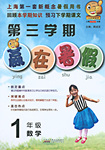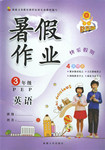题目内容
Having paid off all their ____, the Smiths are now ____ financial problems.
| A.debts; free of | B.money; free of | C.debts; free from | D.money; free for |
C
解析

练习册系列答案
 第三学期赢在暑假系列答案
第三学期赢在暑假系列答案 学练快车道快乐假期暑假作业新疆人民出版社系列答案
学练快车道快乐假期暑假作业新疆人民出版社系列答案
相关题目
题目内容
Having paid off all their ____, the Smiths are now ____ financial problems.
| A.debts; free of | B.money; free of | C.debts; free from | D.money; free for |
C
解析

 第三学期赢在暑假系列答案
第三学期赢在暑假系列答案 学练快车道快乐假期暑假作业新疆人民出版社系列答案
学练快车道快乐假期暑假作业新疆人民出版社系列答案